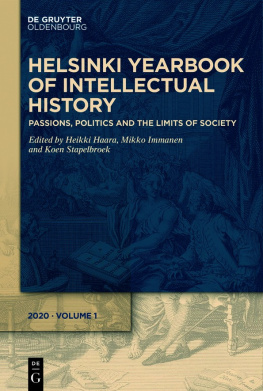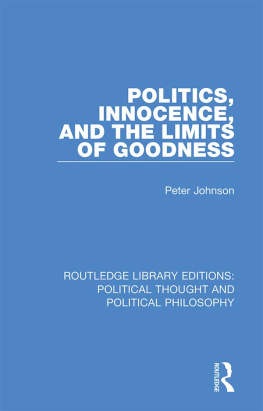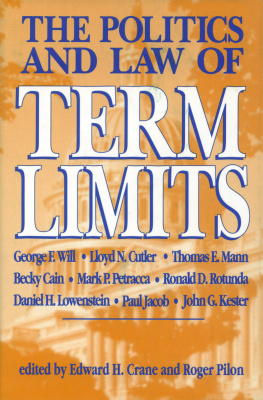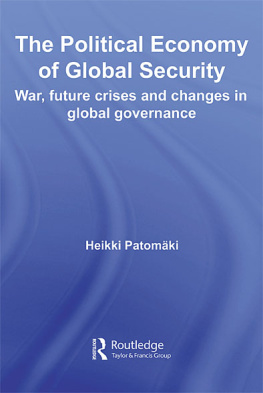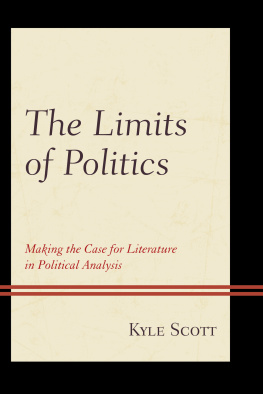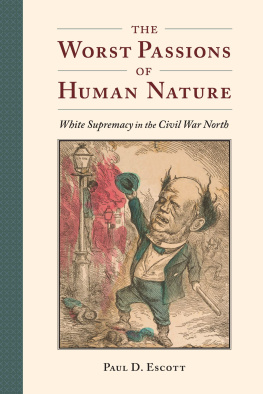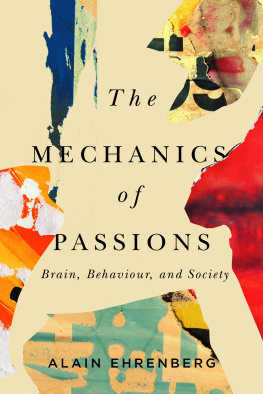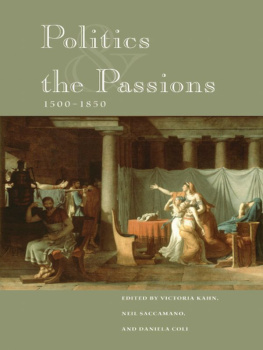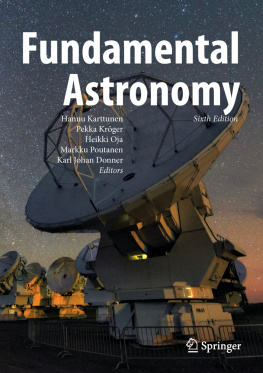Intellectual History and Helsinki: Editorial Introduction
Heikki Haara
Koen Stapelbroek
It is our great pleasure to present this first issue of the Yearbook of the Helsinki Centre for Intellectual History. Entitled Passions, Politics and the Limits of Society, this book brings together in a single volume a range of essays that engage with the changing shape of moral and political inquiry in the early modern period. It also acquaints the reader with the activities of the Centre. By now, it is nearly three and a half years since the Helsinki Centre for Intellectual History was established. In the meantime, the Centre has become something of an international reference point; this publication may therefore be seen as a sign confirming that both intellectual history in general and scholarly life in Helsinki are doing well.
Other than providing an internationally recognisable point of reference, the Centre including its website, seminar series and communicative functions was set up as a local platform for discussion and an exchange of ideas across different historical sub-disciplines and adjacent fields in the social sciences, thereby transcending institutional as well as disciplinary boundaries. The aim of this publication format, an annual volume to highlight initiatives organised in Helsinki or by members of the Centre, is to provide further international visibility to the community of scholars at the University of Helsinki who are involved in fields of intellectual history. Indeed, as agreed by the initiators from the outset and by the membership of the Centre, intellectual history, on our understanding, can take many different forms, be applied in different academic disciplines and to a wide range of historical periods and sources.
The study of ideas in history has a rich and distinguished history in Helsinki and in Finnish academic life. It is our hope that the existence of our Centre may contribute to its further development and also preserve and promote a deeper understanding of the history of intellectual history in Helsinki and Finland.
The Yearbook of the Helsinki Centre for Intellectual History, likewise, is intended to serve as a forum for frontline research of intellectual history broadly construed. It refuses to confine itself to any one discipline or historical period but understands the diversity of the field and promotes the study of intellectual history from a range of methodological and cross-disciplinary perspectives. The first volume of the Yearbook reflects the aims of the Centre. We wish to thank Rabea Rittgerodt at de Gruyter for her support and confidence in this new book series and this volume. We also owe thanks to our external readers for their perceptive comments and suggestions.
The opening chapter of the present volume, The State of Intellectual History: Local and Global by Richard Whatmore, is a fully revised version and further development of his inaugural lecture at the Centre. Originally presented in Helsinki as a pep talk, it engages with the relevance and potential future of the field of intellectual history in a changing world in which understanding the nature and history of political and social challenges is often as hard and essential as coming to grips with their actual appearance and the development of policy or other responses. Citing Istvn Hont, Whatmore suggests that we will not likely see the emergence of a world where intellectual history came to prominence as a discipline in any general public sphere. Nevertheless, one might increasingly be able to agree that eighteenth and nineteenth-century authors are better guides for those who determine our future than the pontifications of economists, journalists and civil servants who have not been schooled in intellectual history.
The first part of the yearbook, following the chapter by Whatmore, is entitled Inclusion and Exclusion in the History of Ideas and provides seven chapters that were originally presented as papers in the first thematic conference organised under the auspices of the Centre in December 2017 in Helsinki. We are proud that our keynote speakers Lszl Kontler and Eva Piirime have allowed us to publish their revised and extended texts as, respectively, Inventing Humanity: Early-Modern Perspectives and Human Rights and their Realisation in the World: Herders Debate with Kant. Kontler shows how the historicisation of nature as a process contributed to the invention and development of the ordering concept of humanity, while Piirime traces the actual principles of what later became the idea of human rights back to the moral philosophical debates between Herder and others in the eighteenth century. The theme of Inclusion and Exclusion is further developed in papers by Justin Begley, Ben Dew, Tatiana Artemyeva, alar mez and Fabio Mengali, who from different perspectives approach the theme of inclusion and exclusion in the history of ideas, including those of the recognition of social, cultural, religious or ethnic difference, and the conceptualisation of tolerance, citizenship and human rights.
The second part of the volume, entitled Natural Law, Political Economy and History is a collection of essays in honour of Kari Saastamoinen. Besides his reputation as an internationally well-known scholar, who has published influential work on Pufendorf, Locke and the history of liberalism and equality, Kari has been a mentor to all but an entire generation of intellectual historians in Helsinki. The first contribution to this part is Markku Peltonens aptly entitled Kari Saastamoinen An Appreciation, which is followed by chapters by Heikki Haara and Tim Stuart-Buttle, Mikko Tolonen, Aino Lahdenranta, Adriana Luna-Fabritius, Ere Nokkala, Laura Tarkka-Robinson and by Jani Marjanen and Jussi Kurunmki. The chapters in this part discuss debates on natural law, human nature and political economy in early-modern Europe. Its contributions explore the sorts of political and moral visions that were relevant in post-Hobbesian moral philosophy and the development of political and economic thought in the Enlightenment.
The connection of Kari to Pufendorf and Karis role as a mentor to young scholars has also inspired the selection of the cover illustration of this Yearbook, Bernard Picarts depiction of Clio revealing the theatre of history to a young student. The drawing was used as the frontispiece of the 1732 edition of Samuel Pufendorfs Introduction l'histoire gnrale et politique de l'univers which was originally published in 1682. Pufendorfs book was a widely-printed and translated European best-seller that appealed to both politicians and general readers who attempted to understand the links between politics and history. This same linkage remains central for intellectual historians wishing to explore and remap the terrain of their field to come to grips with the globalised present.


